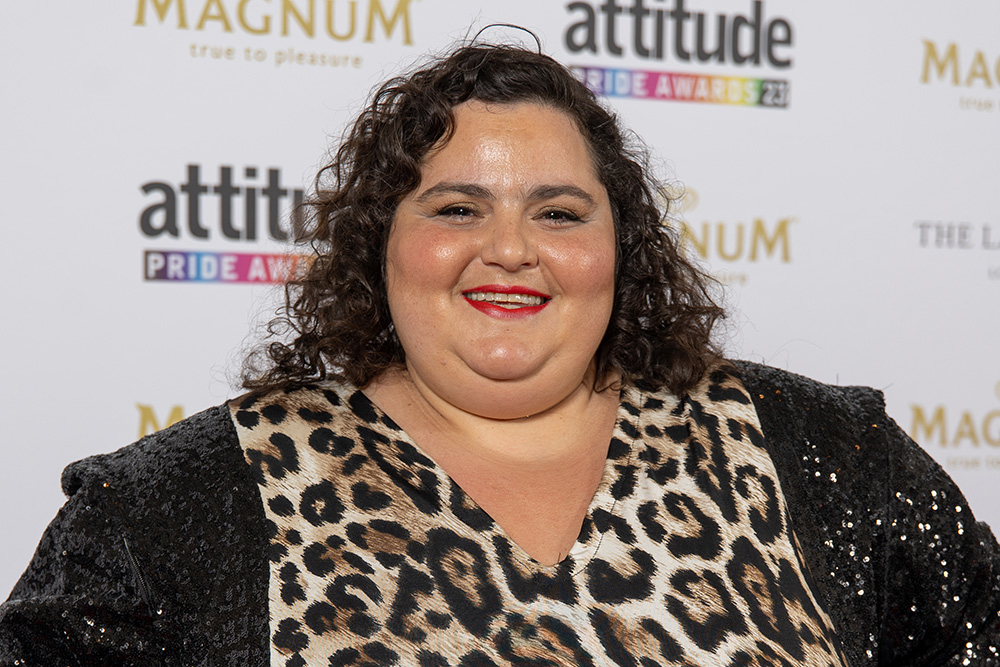French DJ faces backlash after Olympics opening ceremony
A controversial tableau sparks outrage
French DJ and activist Barbara Butch has found herself at the center of a storm after participating in a tableau during the Olympics opening ceremony. The scene, which included drag queens and other members of the LGBTQ community, drew comparisons to Leonardo da Vinci’s “The Last Supper,” igniting backlash from the Catholic Church and conservative figures. Despite the Olympics artistic director Thomas Jolly clarifying that the segment was a tribute to Greek mythology, the controversy has continued to escalate.
Death threats and cyber-harassment
On Monday, Butch revealed on her Instagram account that she has filed several police reports due to receiving death threats. Her attorney, Audrey Msellati, stated that Butch has been the target of an “extremely violent campaign of cyber-harassment and defamation.” The threats have included death, torture, and rape, along with numerous antisemitic, homophobic, sexist, and grossophobic insults.
“Barbara Butch condemns this vile hatred directed at her, what she represents, and what she stands for,” Msellati said. “She is today filing several complaints against these acts, whether committed by French nationals or foreigners, and intends to prosecute anyone who tries to intimidate her in the future.”
The artistic vision and public reaction
During the opening ceremony, Butch was at the center of the tableau, DJing while wearing a silver headpiece and a blue dress. She described her look on Instagram as that of an “Olympian music goddess.” Despite the artistic intent, the scene was met with significant backlash.
Olympics organizers issued an apology during a press conference following the ceremony. Spokesperson Anne Descamps stated, “Clearly there was never an intention to show disrespect to any religious group … If people have taken any offense, we are really sorry.”
The broader context of artistic expression
This incident highlights the ongoing tension between artistic expression and public perception. The use of religious imagery in art has always been a contentious issue, often leading to debates about the boundaries of creativity and respect for religious sentiments. In this case, the inclusion of LGBTQ elements added another layer of complexity, reflecting broader societal debates about inclusion and representation.
For cinema and TV series enthusiasts, this controversy might remind them of other instances where art has pushed boundaries and sparked debate. Think of films like The Last Temptation of Christ or series like The Handmaid’s Tale, which have similarly provoked strong reactions for their bold narratives and imagery.
Personal reflections on the power of art
As someone who deeply appreciates the transformative power of art, I find this situation both troubling and enlightening. Art has the unique ability to challenge our perceptions and provoke thought, but it also carries the responsibility of being sensitive to diverse audiences. The backlash against Butch underscores the fine line artists must walk between innovation and respect.
For music lovers, this incident might resonate with the controversies surrounding artists like Madonna or Lady Gaga, who have often faced criticism for their provocative performances and imagery. These artists, much like Butch, have used their platforms to push boundaries and spark important conversations about identity and expression.
Moving forward: A call for dialogue
In the wake of this controversy, it is crucial to foster a dialogue that respects both artistic freedom and the diverse beliefs of audiences. While it is important to defend the right to creative expression, it is equally important to understand and address the concerns of those who feel offended.
The Paris Prosecutor’s Office and representatives for the Paris Olympics have yet to respond to the ongoing situation. As this story develops, it will be interesting to see how it influences future artistic endeavors and public discourse around the intersection of art, religion, and identity.
this incident serves as a powerful reminder of the impact art can have on society. It challenges us to think critically about the messages we send and the ways in which we interpret them. For those of us who cherish the world of cinema, TV series, and music, it is a call to engage more deeply with the art we consume and the conversations it sparks.

 Italian
Italian







